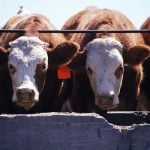
Beef Cattle
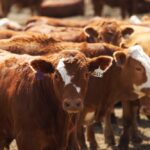
Klassen: Yearling markets mixed
Compared to last week, yearling prices for western Canadian were down $2-$5 on average with the exception of southern Alberta where prices were relatively unchanged. Major feedlots in the Lethbridge area focused on local cattle which contributed to the firmer tone. Outside of Feedlot Alley, weakness in the deferred live cattle futures had buyers on […] Read more
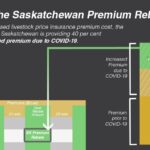
Saskatchewan extends WLPIP premium rebate if needed
Rebate to offset premium prices, if above pre-COVID levels
Saskatchewan’s temporary subsidy against price jumps in premiums for the Western Livestock Price Insurance Program (WLPIP) will continue when needed to the end of 2020. Saskatchewan Crop Insurance Corp. (SCIC), which administers the program in that province, announced Tuesday the WLPIP premium rebate is extended to Dec. 31, from its previous end date of Sept. […] Read more

Prime Cuts: Industry still faces challenges
The North American beef industry is no stranger to crises. From the market-distorting beef price freeze in the U.S. under President Richard Nixon to its first BSE cases in 2003, the industry has rebounded from whatever challenge it has faced. Canada, though, never fully recovered from its BSE cases. National cattle herd numbers peaked at […] Read more

Beef sustainability: Playing the long game
Many in the beef supply chain are banking on strengthening demand for certified sustainable beef, through the pandemic and beyond
One of the side effects of the current COVID-19 pandemic is that Canadians have begun to look at the world through a different lens. Priorities have shifted and lifestyles have been altered. Everyone from producers, to small businesses, to global agribusinesses are adjusting to a new-look marketplace. It’s meant a course correction for some organizations, […] Read more

Klassen: Yearling market remains red hot
Barley harvest well underway in southern Alberta
Compared to last week, western Canadian yearling prices were $2-$4 higher on average; however, in southern Alberta, yearlings traded $6-$8 above week-ago levels. A few auction barns in Alberta held their first feature sales of the fall run and buyers showed up with both hands. The quality of yearlings coming off grass is excellent and […] Read more
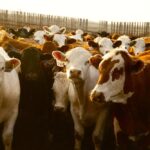
Klassen: Yearling prices on fire
Canada's cattle herd remains in contraction stage
Compared to last week, yearlings coming off grass traded $3-$5 higher; backgrounded yearlings were $1-$3 higher on average while calf markets were relatively unchanged. February and April live cattle futures closed marginally lower for the week; however, fed cattle basis levels from U.S. packers are very strong for winter and spring. This appears to be […] Read more

Klassen: Yearling demand remains firm
Compared to last week, western Canadian yearlings fresh off grass traded steady to $2 higher; backgrounded yearlings were relatively unchanged. The calf market was too thin to quote. Major feedlot operators set the price structure and were once again very aggressive. While many feedlots are backed up with market-ready supplies of fed cattle, some feedlots […] Read more

JBS to resume U.S. share listing plan after COVID-19 fallout
Management looking also for US$100 million in cost cuts
Sao Paulo | Reuters — Brazil’s JBS SA is reviving plans to list shares on Wall Street after dealing with the COVID-19 pandemic’s fallout, CEO Gilberto Tomazoni said on Friday, as the world’s largest meatpacker reported strong quarterly results. Speaking on a conference call with analysts following the company’s second-quarter results, Tomazoni said the focus […] Read more

McDonald’s resuming all-Canadian beef supply
'Supply adjustment' ends next month, company says
Updated, Aug. 18 — McDonald’s Canada’s pandemic-related “supply adjustment,” in which the burger chain cut its Canadian beef purchases to below 100 per cent, is set to end next month. The Canadian arm of the U.S. fast food giant announced Thursday it will resume its pre-pandemic policy of sourcing 100 per cent Canadian beef, starting […] Read more
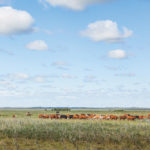
A deeper look into A&W’s grass-fed Canadian beef initiative
A&W’s announcement to source 100 per cent Canadian grass-fed beef drew criticism from some while providing a new marketing opportunity for many Canadian producers
In challenging economic times, it can pay to diversify your business model. For Ross Macdonald of 98 Ranch, this was a strong case for marketing cattle into grass-finishing supply chains. Building resiliency into your business, especially when traditional markets have been challenged, is what Macdonald sees as “probably the least discussed and least understood opportunity” […] Read more

